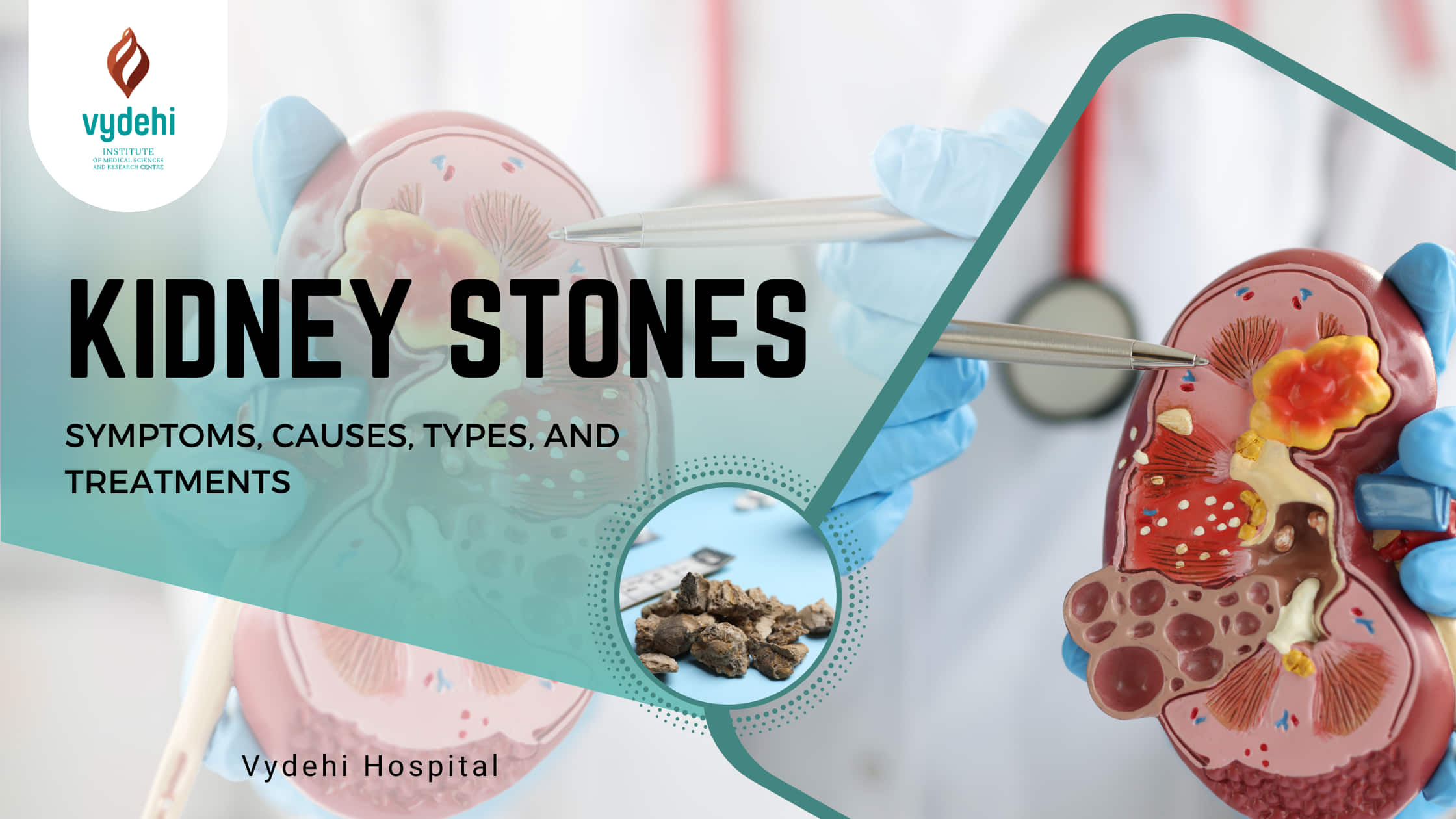

Kidney stones are a common disease that we all have heard about. But many people need to be made aware of the causes, types, and treatments of kidney stones. Kidney stones are hard mineral and salt deposits that form in the kidneys. Kidney stones are the main reason behind the severe pain and discomfort and may require medical intervention for treatment.
Here, we will explore kidney stone symptoms, causes, types, and various treatment options available.
The signs and symptoms of people suffering from kidney stones are different from person to person. But some of the widespread signs and symptoms of kidney stones are given below:
Kidney stones are caused due to numerous factors. Some of the factors that are responsible for causing and deposition of kidney stones are:
Kidney stones can be classified into four different types. They are classified based on the basis of stones and the causes of kidney stones like an infection. The different types of kidney stones are given below:
A lot of factors are taken into consideration for the treatment of kidney stones. For example, for determining the method of kidney stones treatment, various factors like size, location, and severity of the symptoms are considered.
The most common treatment options that are generally applied are:
Kidney Stones can be prevented by bringing significant changes in the diet plan and lifestyle. Here are some tips as follows:
In conclusion, kidney stones can be a painful and uncomfortable condition. Understanding the symptoms, causes, types, and treatment options can help us to take necessary precautions and to go for appropriate medical help when needed. Following a healthy lifestyle and good and healthy food and discipline will help in reducing the risk of kidney stones and maintaining the best kidney health.
Remember, if you have any of these symptoms or suspect kidney stones, consult a doctor immediately for an accurate diagnosis and personalized/customized treatment plan. You can also consult any of the expert doctors at the Vydehi Institute of Medical Sciences and Research Center.
The information included here is only for knowledge-sharing purposes, and the blog is not intended to be a substitute for diagnosis, medical advice, or treatment by a healthcare professional. Every individual needs advice based on diagnosis and evidence, hence the reader should consult their doctor to determine the disease and any treatment must be taken under appropriate medical guidance.

 Emergency Number
Emergency Number
The given symptoms of kidney stones are really helpful.